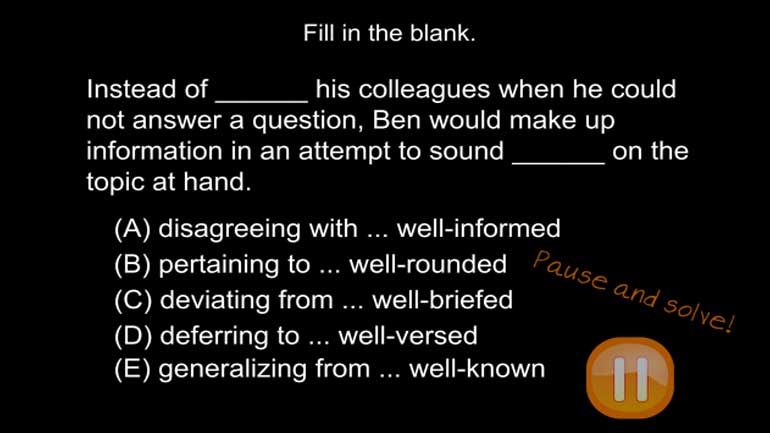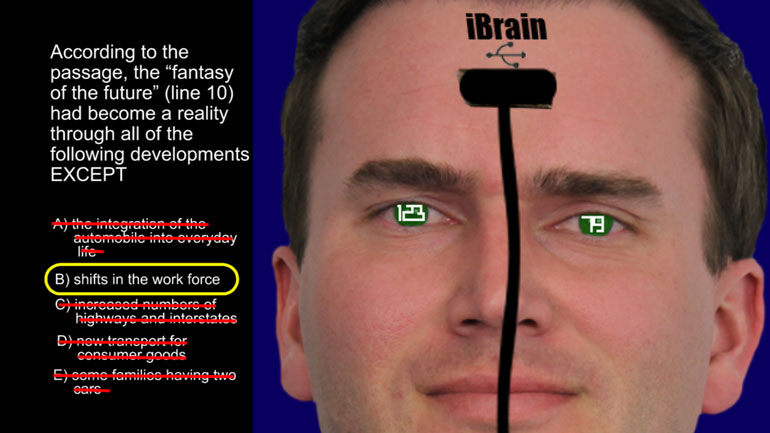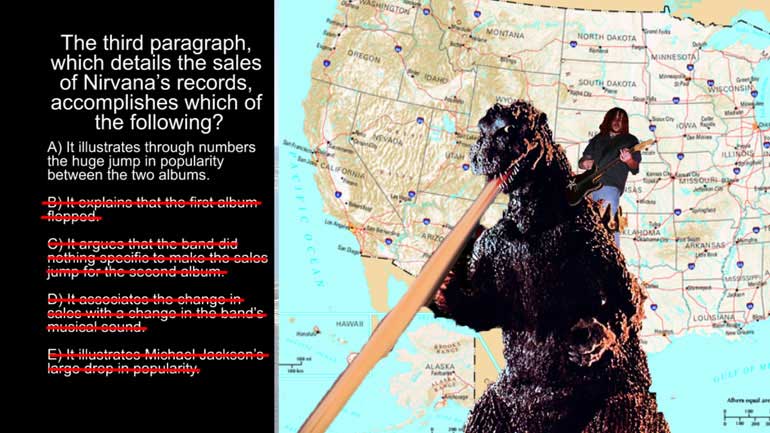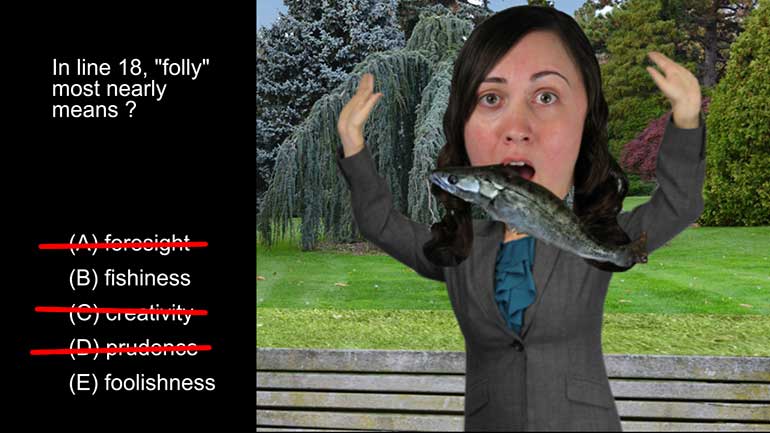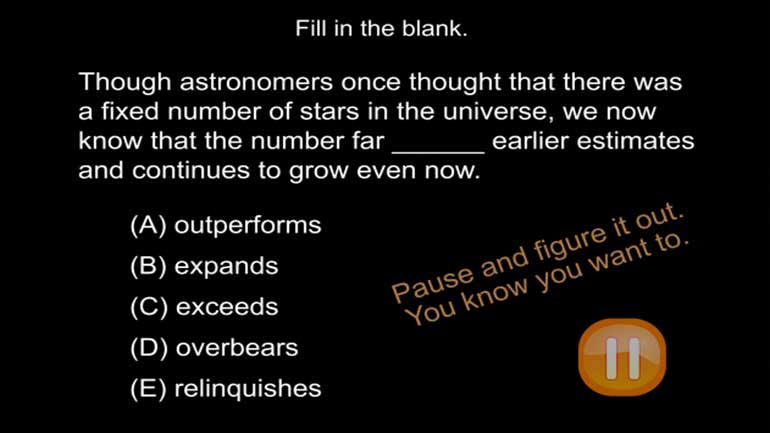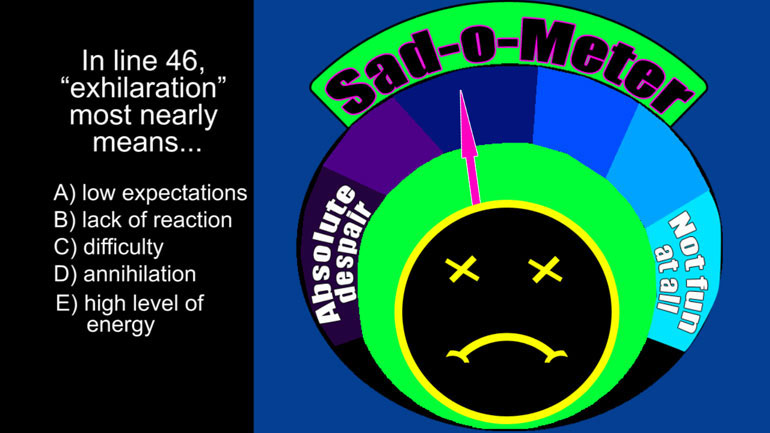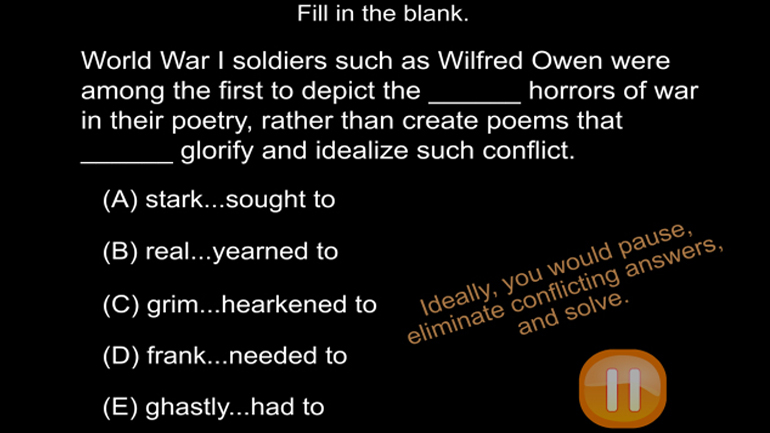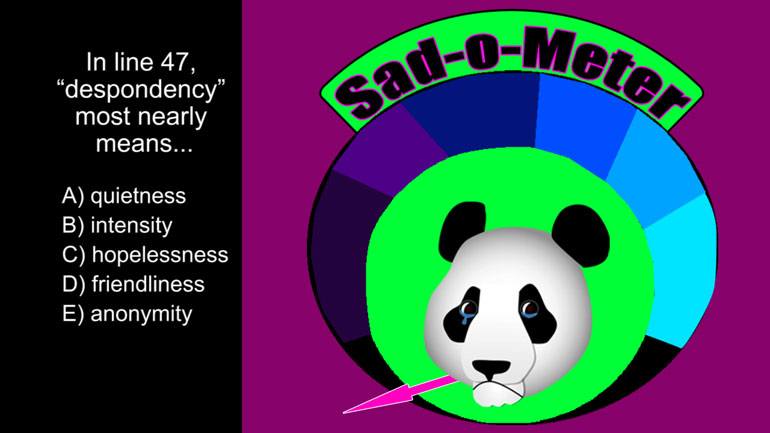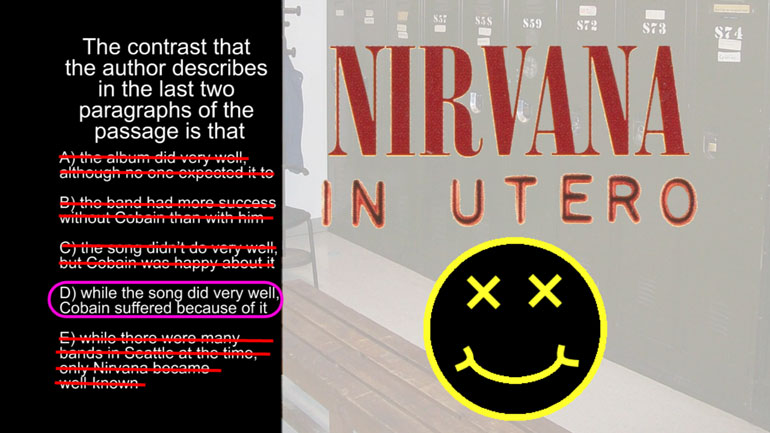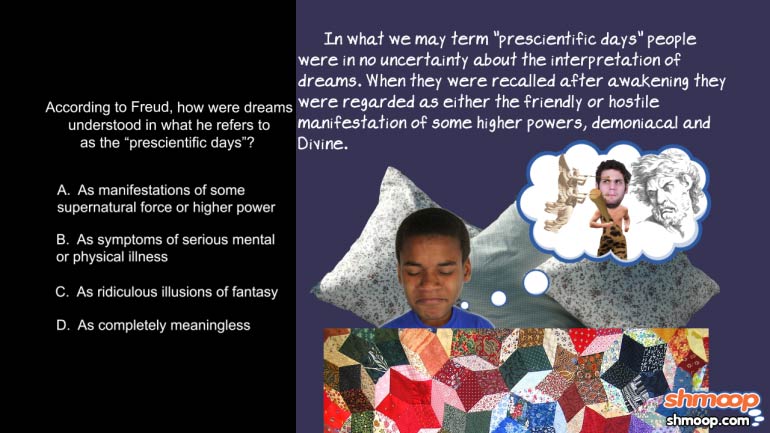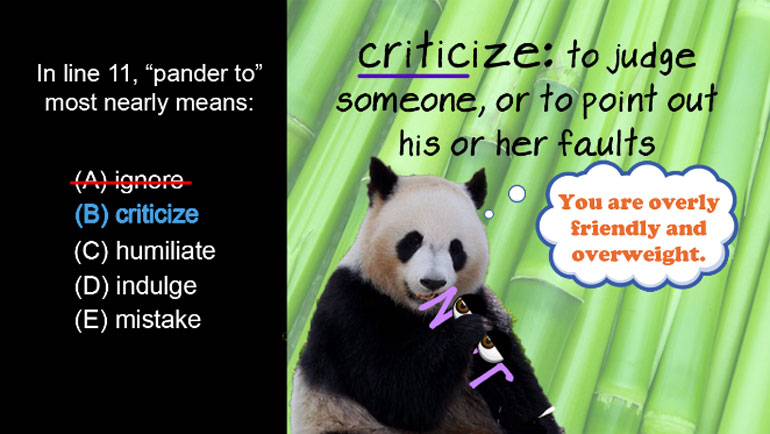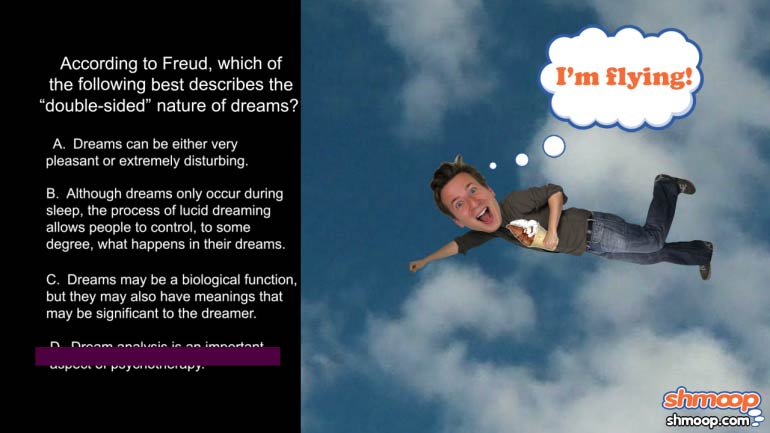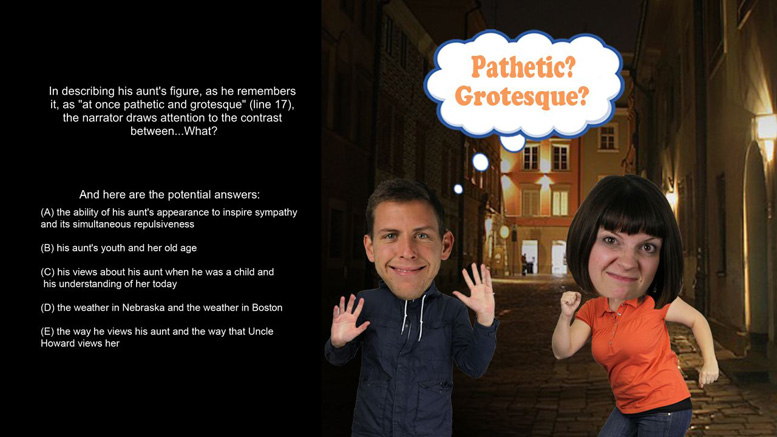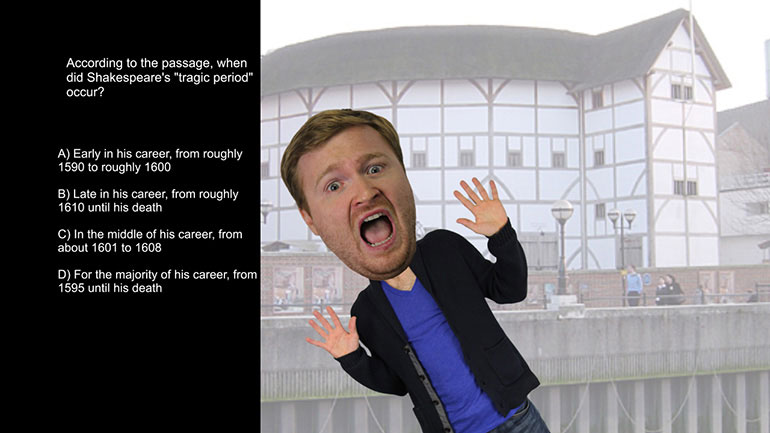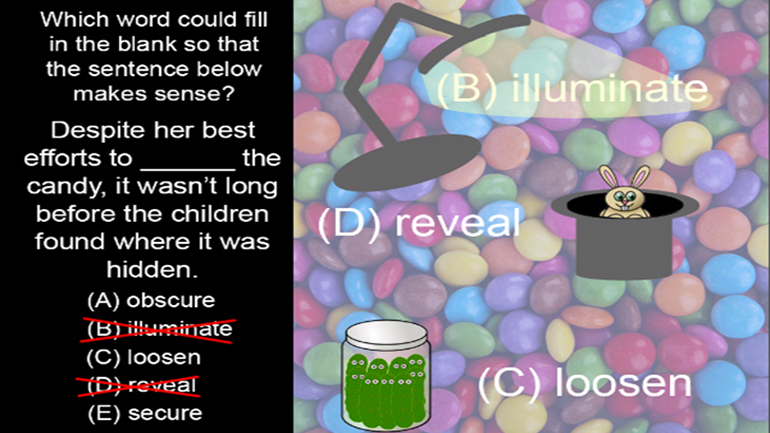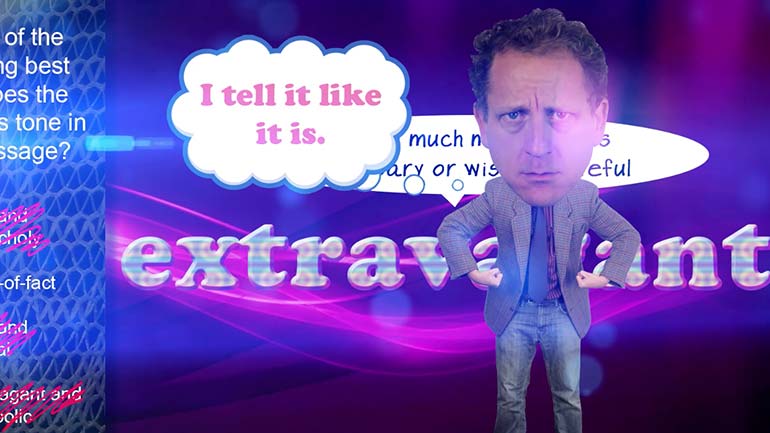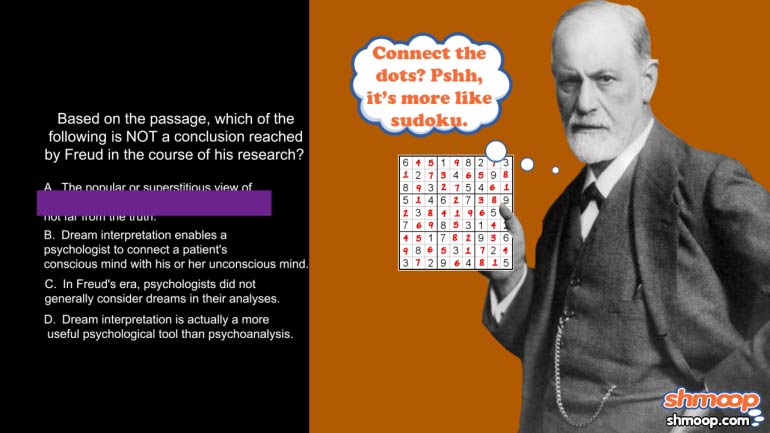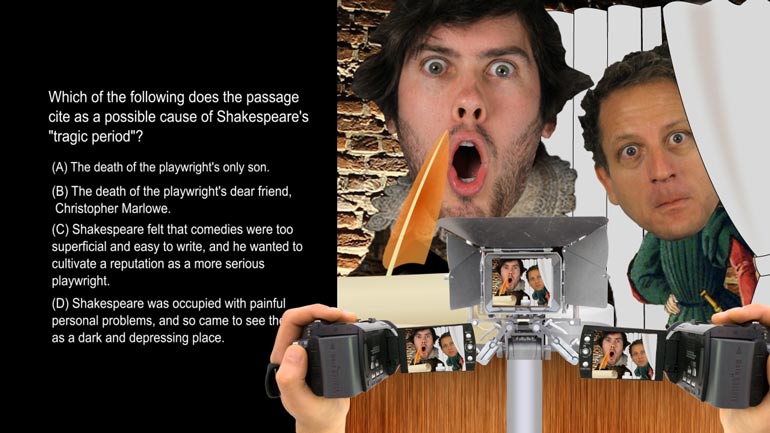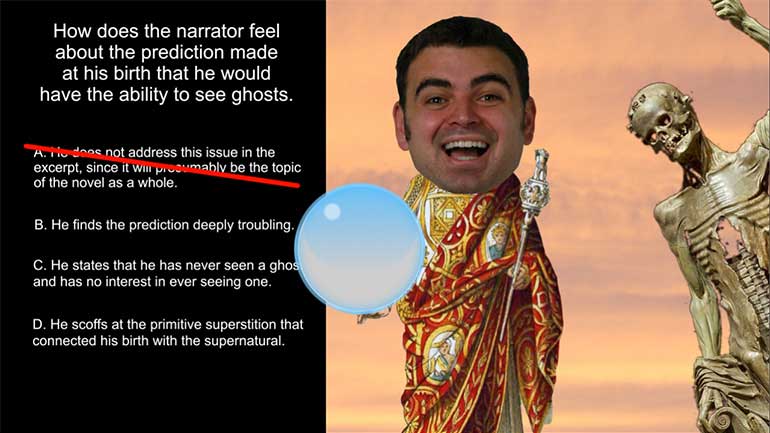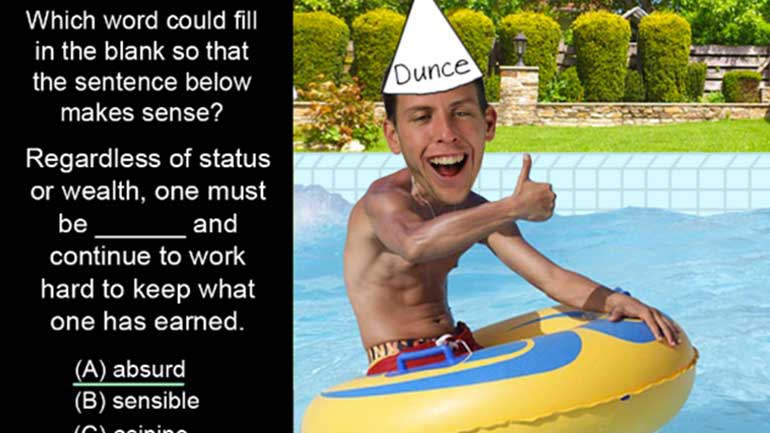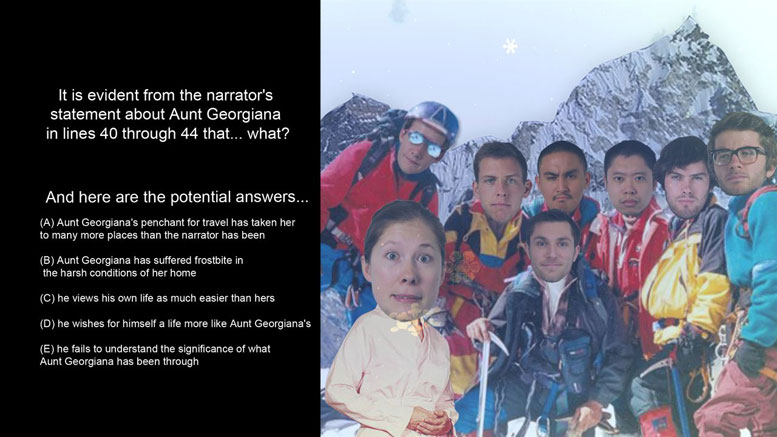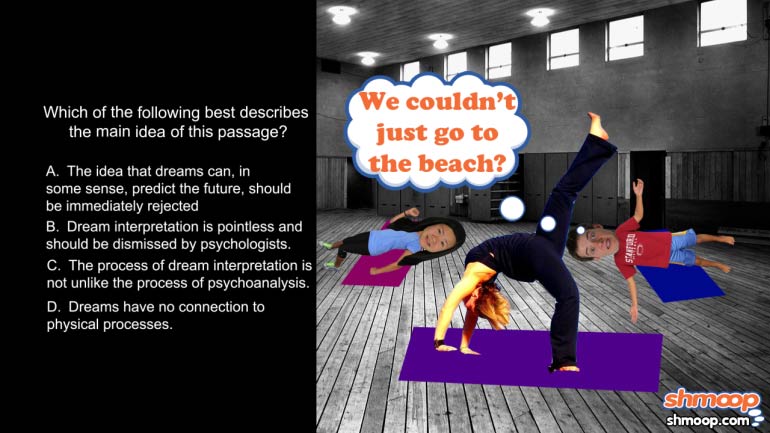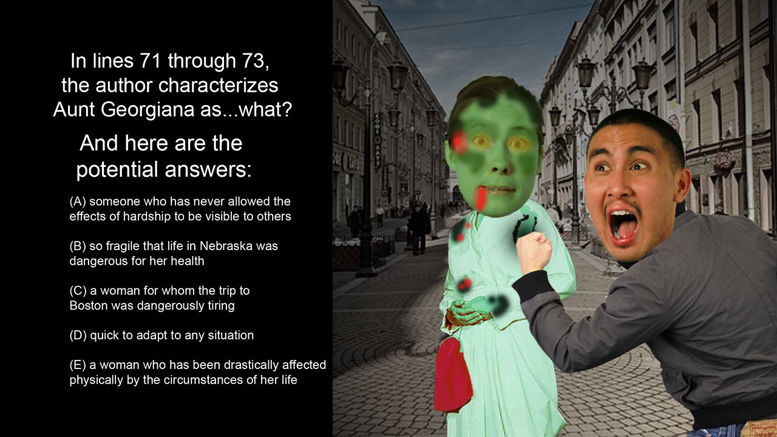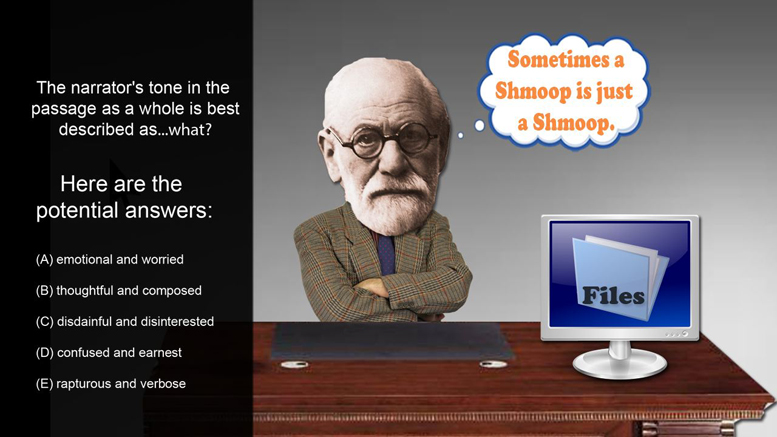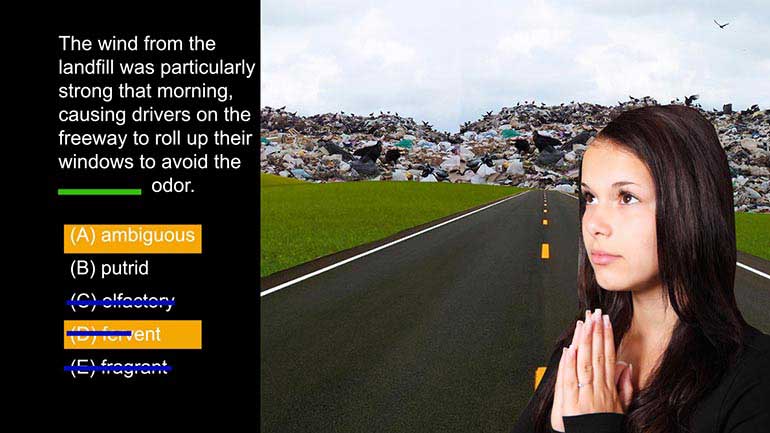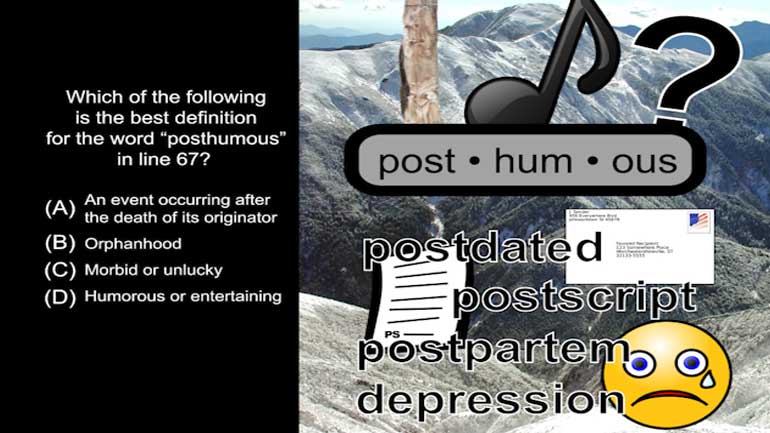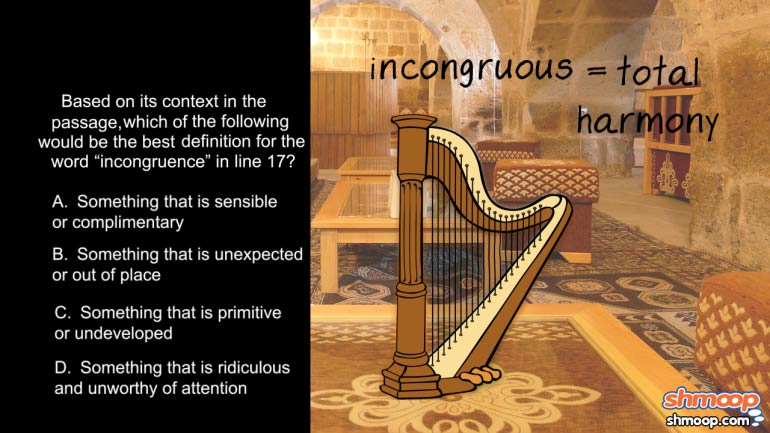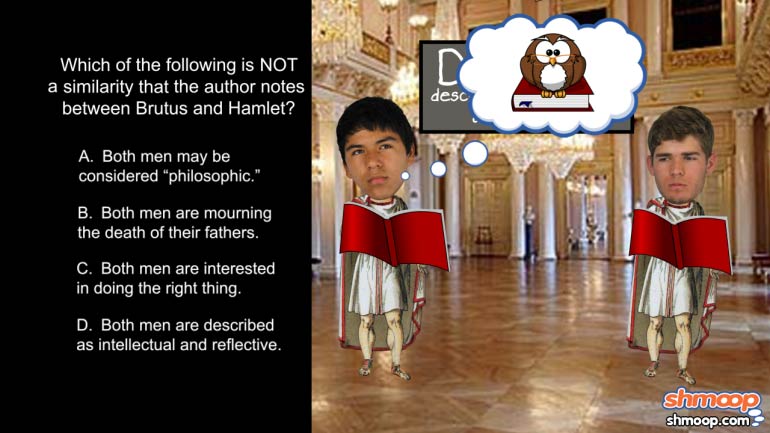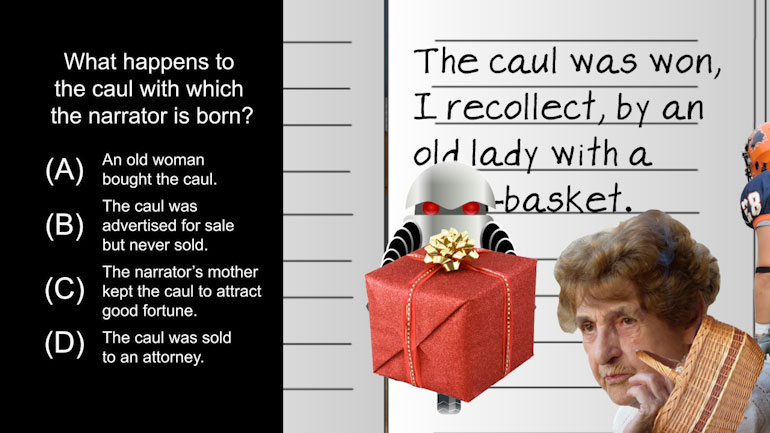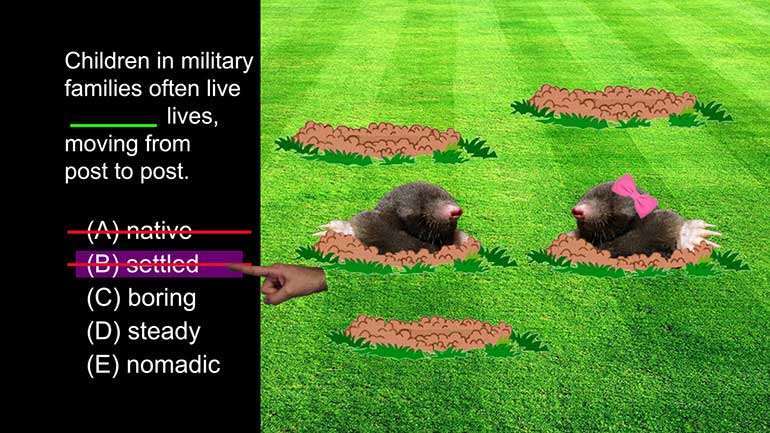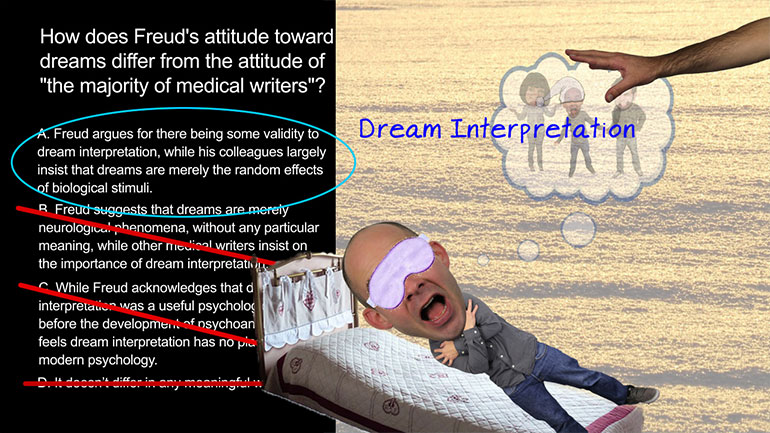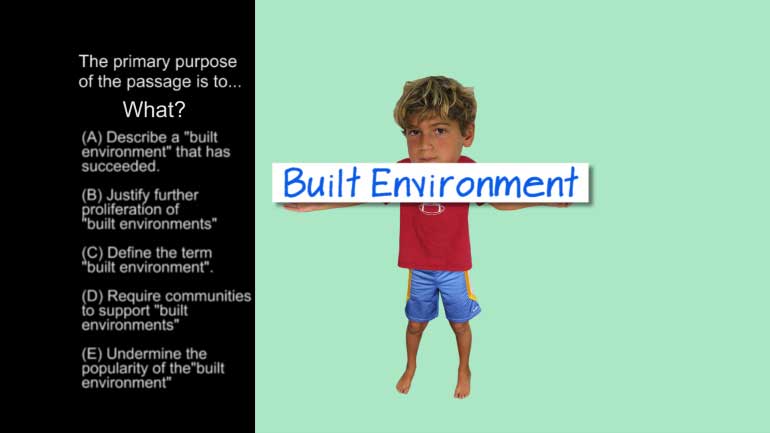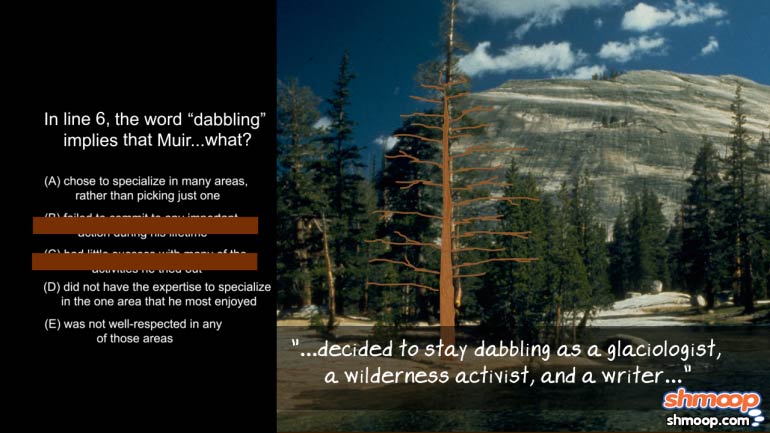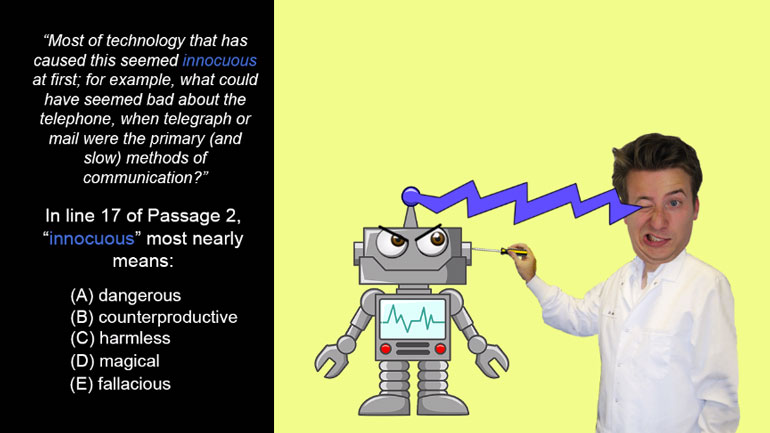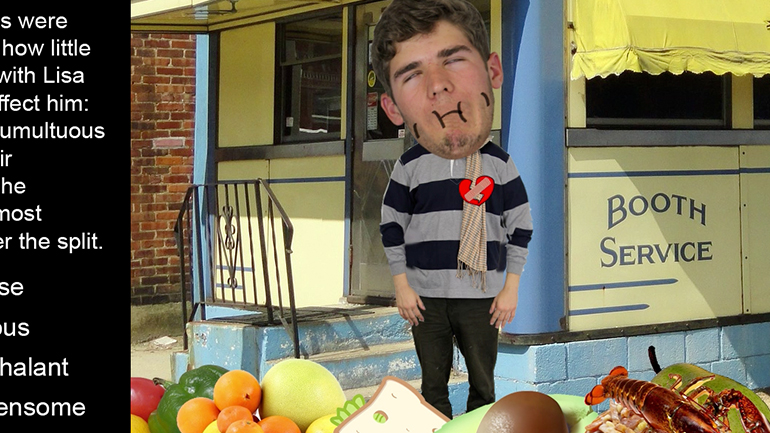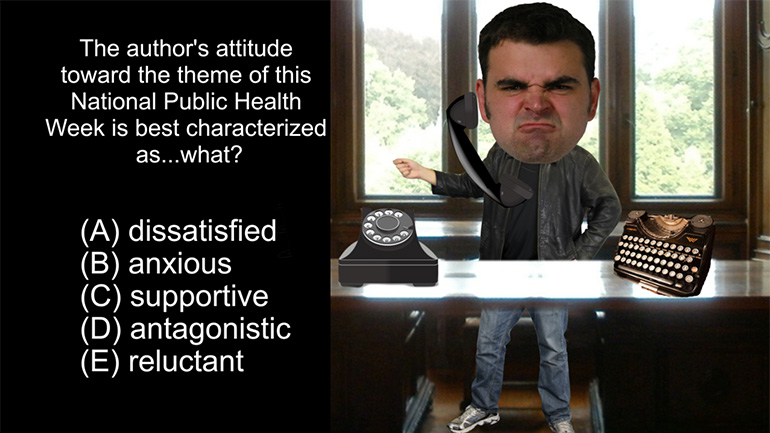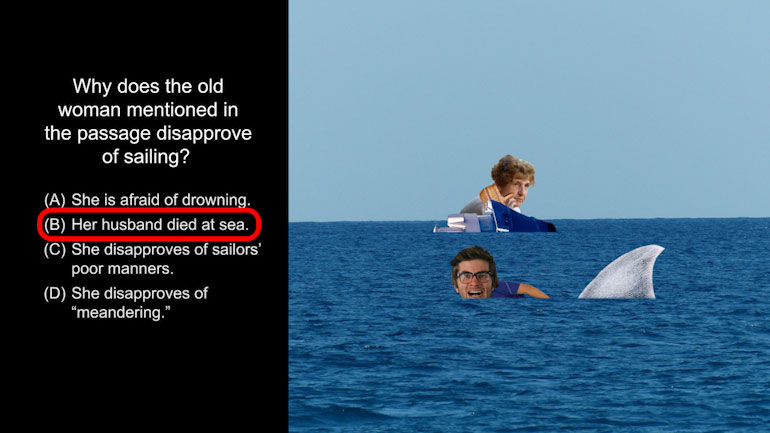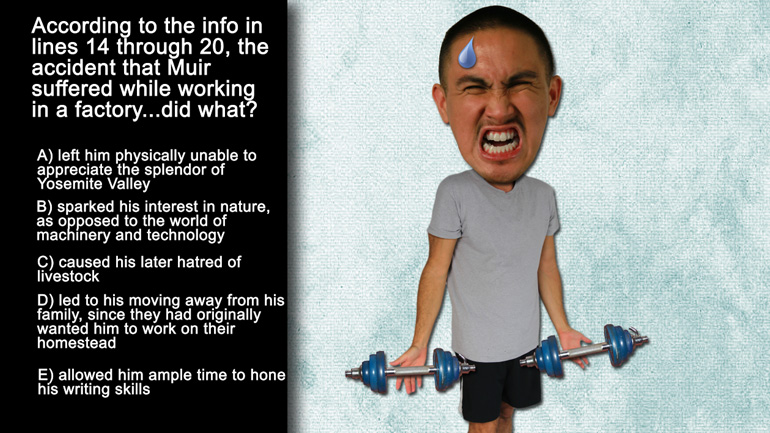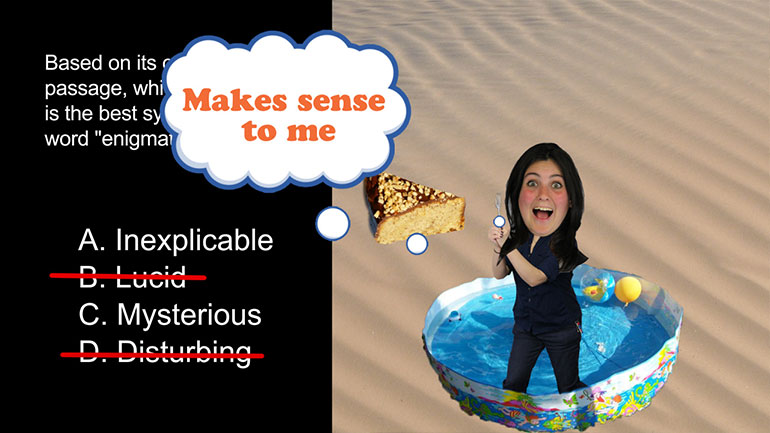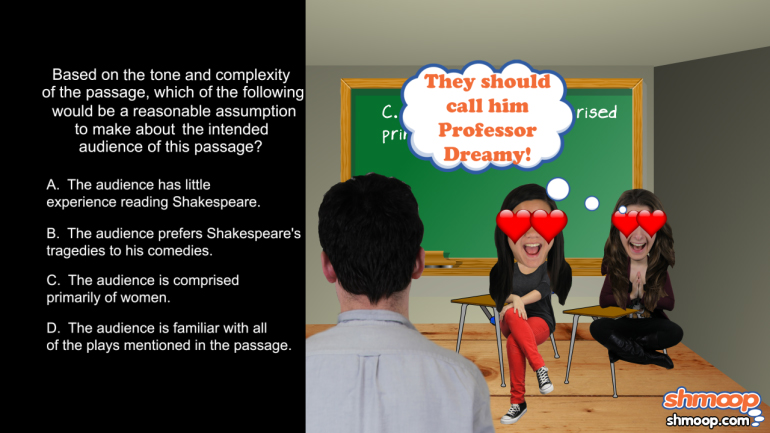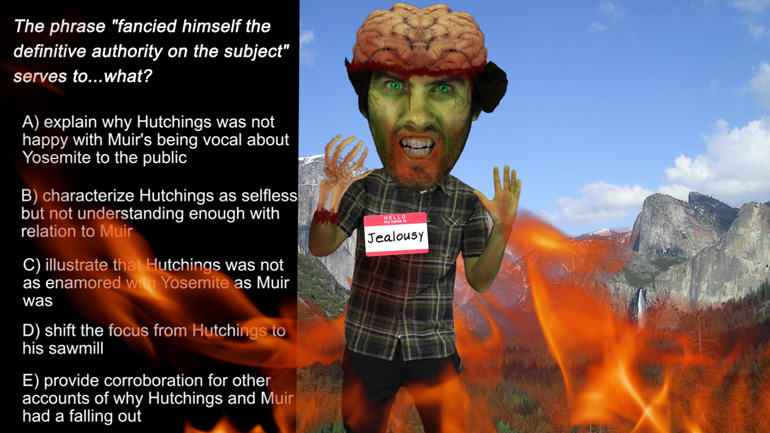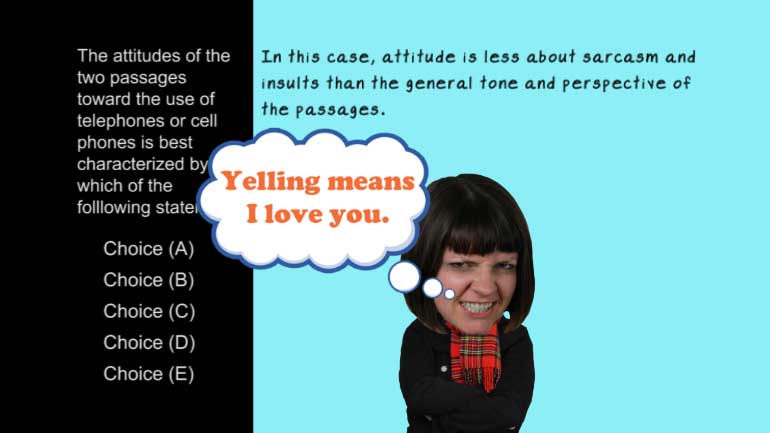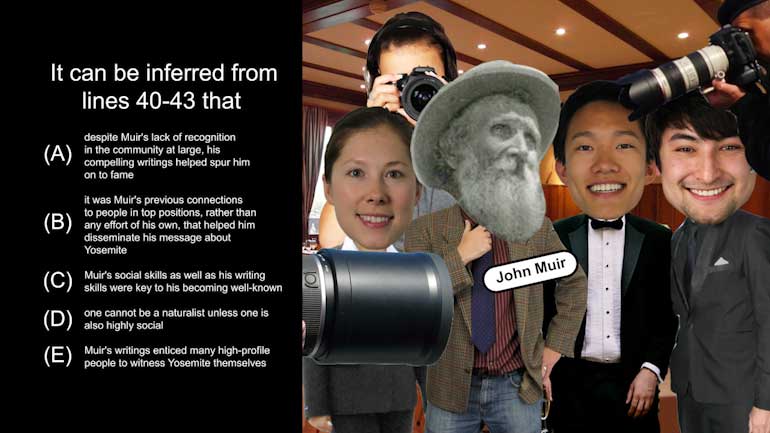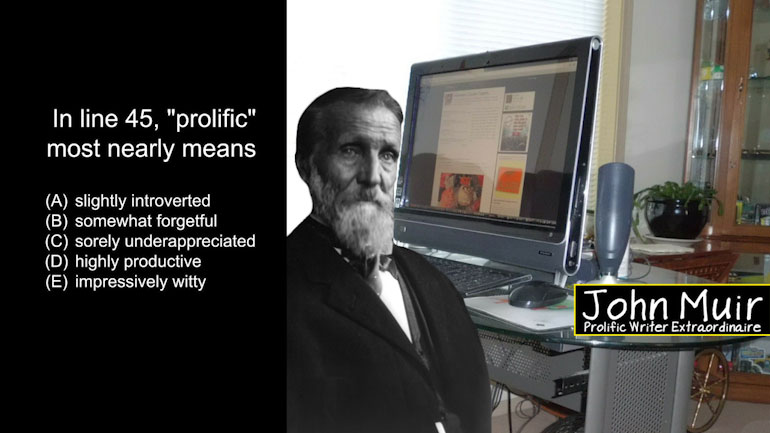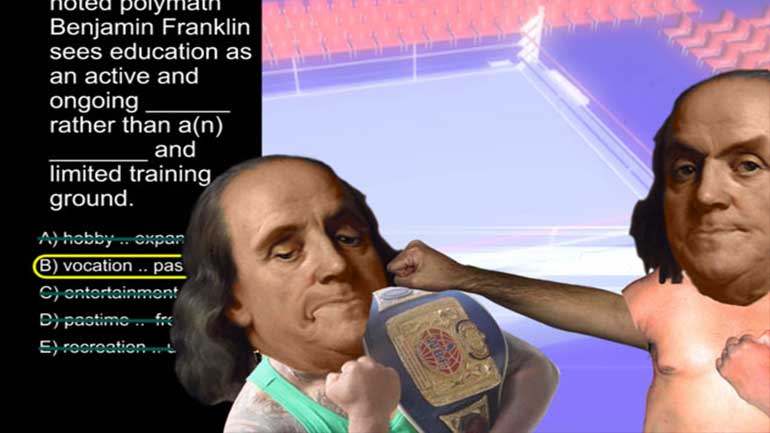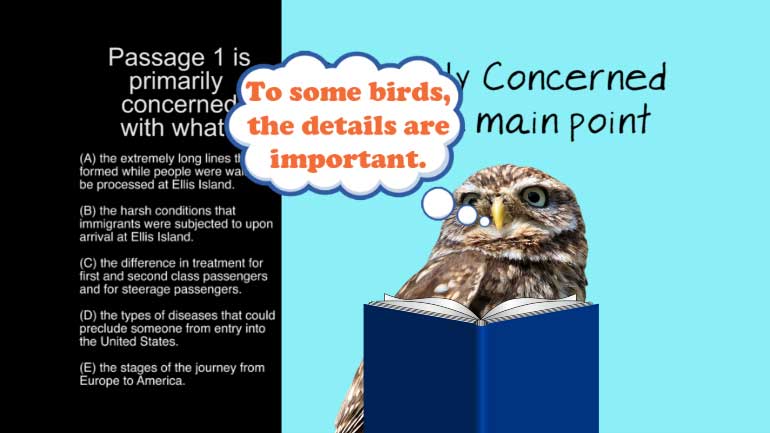ShmoopTube
Where Monty Python meets your 10th grade teacher.
Search Thousands of Shmoop Videos
ACT Reading 1.7 Natural Science Passage 193 Views
Share It!
Description:
ACT Reading 1.7 Natural Science Passage. Which of the following discoveries about Mars has been credited to the NASA missions?
Transcript
- 00:04
Here's your Shmoop du jour, brought to you by Vikings. In space. Wonder how they kept
- 00:08
their horns from puncturing their astronaut helmets.
- 00:34
Which of the following discoveries about Mars has been credited to the NASA missions?
- 00:50
By this point we've done a lot of skimming and rereading of the passage, so we're pretty
- 00:54
sure we can wing it, this time.
Full Transcript
- 00:55
So...let's take the plunge without a parachute.
- 00:58
If life were discovered on Mars, as (D) claims, then we probably would've heard about it.
- 01:04
Unless the government staged a big cover-up.
- 01:06
Whatever the case, choice (D) isn't passage-approved so we can take it out of the running.
- 01:10
(C) isn't correct either. The passage specifically tells us that the volcanoes of Mars are inactive.
- 01:15
We can also cross off choice (B), since the passage doesn't say anything about Mars
- 01:19
having an unusually high gravitational field. Answer (A) is correct. Lines 46 through 49
- 01:25
confirm that NASA thinks there's a chance of water on Mars.
- 01:29
The discovery of water would be great for all those Martians who've really been needing a shower.
Related Videos
ACT Reading 1.5 Social Science Passage. Based on its context in the passage, which of the following would be the best definition for the word...
ACT Reading: Humanities Passage Drill 1, Problem 1. Which of the following best describes the main purpose of this passage?
ACT Reading: Natural Science Passage Drill 1, Problem 1. Which of the following best describes the overall purpose of this passage?
ACT Reading Prose Fiction Drill 1, Problem 1. Which of the following best describes the overall purpose of this passage?
ACT Reading: Social Science Passage Drill 1, Problem 1. According to Freud, how were dreams understood in what he refers to as the "prescienti...





